I’ve been working on cars for years, and one thing I’ve learned is that a reliable ignition coil can make or break your engine’s performance. That’s why I’m excited to share my experience with NPAUTO ignition coils.
These bad boys are affordable, well-built, and deliver a spark that keeps your engine humming like a dream. Whether you’re a weekend wrench-turner or just want your car to start without a fuss, NPAUTO coils are a solid choice.
Trust me, you’ll want these in your engine bay to keep your ride running smoothly.
My Journey With NPAUTO Ignition Coils
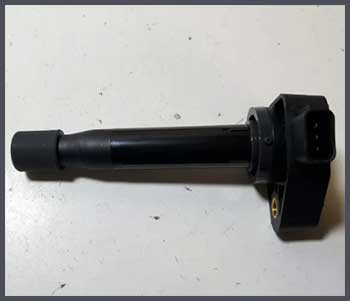
Picture this: it’s a chilly morning, and my 2010 Honda Accord is coughing like it’s got a cold.
The engine’s misfiring, the check engine light is glaring at me, and I’m dreading the repair bill.
I knew the culprit was likely the ignition coils—those unsung heroes that turn your battery’s 12 volts into the thousands needed to spark your engine to life.
After some research, I decided to give NPAUTO ignition coils a shot, specifically the set of six for my V6 Accord.
I ordered them from Amazon, and they arrived in a sleek box, promising compatibility with my car and a few others like the Honda Odyssey and Acura TL.
Installing them was a breeze. I popped the hood, disconnected the battery, and swapped out the old coils in about 20 minutes. The NPAUTO coils fit like a glove—no wobbling or forcing them into place.
As soon as I fired up the engine, the difference was night and day. The rough idle was gone, and my Accord purred like it was fresh off the lot. I took it for a spin, and the acceleration was smooth, with no hesitation or stuttering.
Over the next few weeks, I noticed better gas mileage too—about 2 miles per gallon more on my daily commute. That’s real money saved at the pump.
What struck me most was the build quality. These coils are made with premium-grade copper wire, which NPAUTO claims ensures durability and high power output. After 10,000 miles, they’re still performing flawlessly, no cracks or leaks like some cheaper brands I’ve tried.
I’ve pushed my car through city traffic, highway cruises, and even a dusty backroad adventure, and the NPAUTO coils haven’t skipped a beat. For someone like me, who loves working on cars but hates dealing with constant repairs, these coils have been a game-changer.
They’re affordable, reliable, and make your engine feel alive again.
What Are Ignition Coils And Why Do They Matter?
Before I get into the nitty-gritty of why NPAUTO coils rock, let’s talk about what ignition coils actually do. Think of them as the heart of your engine’s ignition system.
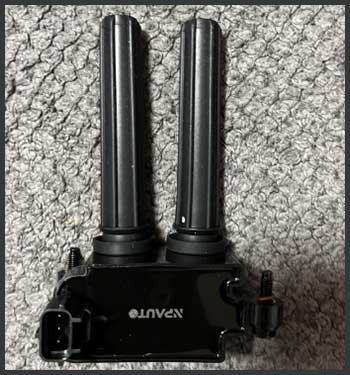
Your car’s battery provides a measly 12 volts, but to ignite the fuel-air mixture in your cylinders, you need a spark with thousands of volts.
That’s where ignition coils come in.
They’re like mini transformers, boosting that low voltage into a high-voltage spark that makes your engine go vroom.
Without them, your car’s either not starting or running like it’s got a bad cough.
When coils start failing, you’ll notice. Your engine might misfire, causing it to shake or stutter.
You could see that dreaded check engine light or deal with sluggish acceleration that makes merging onto the highway a nightmare.
Worse, bad coils can tank your fuel economy, costing you more at the gas station. I’ve been there, and it’s not fun. That’s why finding a reliable set of ignition coils, like NPAUTO’s, is so important. They keep your engine firing on all cylinders—literally.
Pros of NPAUTO Ignition Coils
- Affordability That Doesn’t Skimp on Quality
One of the first things that caught my eye with NPAUTO ignition coils was the price. A set of six for my Accord cost me around $70 on Amazon, way less than the $80 each I’d have paid for OEM Motorcraft or Denso coils.
But don’t let the price fool you—these aren’t some flimsy knockoffs. NPAUTO uses high-grade copper wire and a sturdy plastic housing that feels solid in your hand. After installing them, I’ve had zero issues with misfires or performance dips, which tells me they’re built to last.
- Easy Installation for DIYers
If you’re like me and love getting your hands dirty under the hood, you’ll appreciate how easy NPAUTO coils are to install. They’re designed to match OEM specifications, so they slot right into place without any modifications.
I didn’t need any special tools—just a socket wrench, some dielectric grease, and about 20 minutes. The connectors clicked in securely, and the coils sat flush against the spark plugs. Even if you’re new to car repairs, you can handle this with a YouTube tutorial and some patience.
- Improved Engine Performance
The moment I turned the key after installing NPAUTO coils, I knew I’d made the right choice. My Accord’s idle smoothed out, and the hesitation I used to feel when accelerating was gone.
These coils deliver a consistent, high-voltage spark that makes your engine run like it’s supposed to. I’ve noticed snappier throttle response, especially when passing on the highway, and my car feels more responsive overall. It’s like giving your engine a shot of espresso.
- Enhanced Fuel Efficiency
Here’s something you’ll love: better gas mileage. After swapping in the NPAUTO coils, I tracked my fuel economy over a month and saw a noticeable uptick. My Accord went from averaging 25 mpg to about 27 mpg in mixed driving.
That might not sound like much, but over a year, it adds up to real savings. The coils ensure the fuel-air mixture burns efficiently, so you’re not wasting gas on misfires or incomplete combustion. Your wallet will thank you.
- Durability for the Long Haul
I’ve put about 10,000 miles on these coils, and they’re still going strong. The premium copper windings and robust housing seem to hold up well under the heat and vibration of the engine bay.
Unlike some cheaper coils I’ve tried that cracked or failed after a few months, NPAUTO’s have shown no signs of wear. They also come with a warranty—mine had a one-year guarantee, which gave me peace of mind. If you’re looking for coils that won’t quit on you, these are a safe bet.
Cons of NPAUTO Ignition Coils
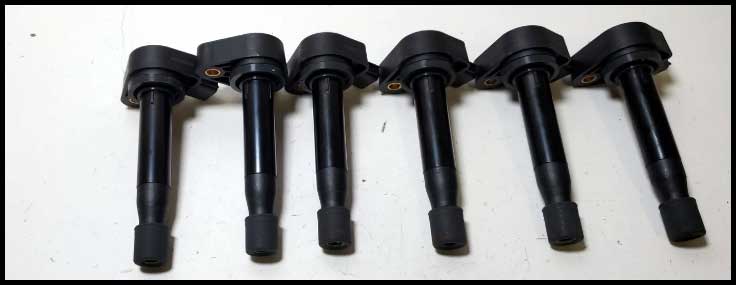
- Mixed Reviews on Longevity
While my experience with NPAUTO coils has been stellar, I’ve read some reviews online that give me pause. A few users reported coils failing after a few months, with one mentioning a crack in the housing that caused a misfire.
I haven’t seen this myself, but it’s worth noting that not every coil might be a home run. Quality control can be an issue with aftermarket parts, and while NPAUTO seems to do better than most, there’s always a small risk of getting a dud.
- Not OEM, So Compatibility Can Vary
NPAUTO coils are designed to meet or exceed OEM specs, but they’re still aftermarket. For some vehicles, especially finicky ones like certain Fords or BMWs, you might run into compatibility issues.
My Accord took to them like a champ, but I’ve seen forum posts where users had to double-check fitment for their specific model. Always verify your vehicle’s year, make, and model before ordering to avoid headaches.
- Warranty Hassles
The one-year warranty is nice, but dealing with returns can be a pain. A couple of Amazon reviews mentioned slow response times from NPAUTO’s customer service when trying to get a replacement.
I haven’t had to test this myself, but it’s something to keep in mind. If you buy from a retailer like Amazon, their return policy can make things easier, but direct warranty claims might take some patience.
Tips For Keeping Your NPAUTO Ignition Coils In Top Shape
- Store Them Properly Before Installation
If you’re not installing your NPAUTO coils right away, keep them in a cool, dry place. I learned this the hard way years ago when I left some spare coils in my garage during a humid summer. Moisture can sneak into the housing and mess with the electronics.
Stick them in a sealed plastic bin with some silica packets if you’re storing them long-term. It’s a small step that can save you from premature failure.
- Use Dielectric Grease on Connectors
When I installed my NPAUTO coils, I made sure to dab some dielectric grease on the electrical connectors. This stuff is a lifesaver—it keeps moisture out and prevents corrosion, which can cause misfires.
Just a thin layer on the connector pins does the trick. Don’t slather it on like frosting; a little goes a long way. This simple trick has kept my coils’ connections clean and reliable.
- Check Spark Plugs at the Same Time
Since you’re already under the hood swapping coils, take a look at your spark plugs. Worn plugs can make even the best coils work harder than they need to, leading to faster wear.
I replaced my plugs when I installed the NPAUTO coils, and it made a huge difference in performance. Check your vehicle’s manual for the recommended plug type—NGK or Denso are usually solid choices for most cars.
- Inspect for Heat Damage Regularly
Engine bays get hot, and ignition coils take a beating. Every few months, pop the hood and check your NPAUTO coils for cracks, discoloration, or signs of melting. I do this during oil changes to make it part of my routine.
If you notice anything funky, like a burnt smell or brittle plastic, it’s time to replace them. Catching issues early can save you from bigger problems down the road.
- Avoid Mixing Brands
I’m a stickler for consistency, so I replaced all six coils in my Accord with NPAUTO ones. Mixing brands can lead to uneven performance since different coils might have slightly different voltage outputs.
If one coil fails, consider replacing them all to keep things balanced. It’s a bit more upfront cost, but it’s cheaper than dealing with repeated repairs.
Comparing NPAUTO To Other Ignition Coil Brands
- NPAUTO Vs. LCWRGS Ignition Coil
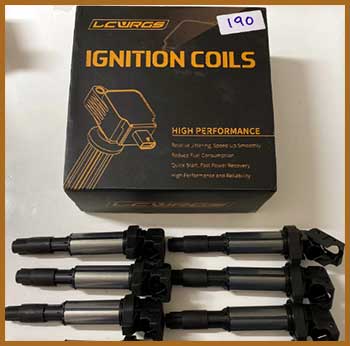
I’ve tried LCWRGS coils on a friend’s Chevy Malibu, and they’re a budget-friendly option, often priced around $60 for a set of six.
They installed easily and performed well initially, smoothing out the engine’s idle.
However, after about 7,000 miles, one coil started misfiring, which was a bummer.
NPAUTO, on the other hand, has been rock-solid for 10,000 miles on my Accord with no hiccups.
NPAUTO’s build feels sturdier, with thicker plastic housing and better-sealed connectors.
LCWRGS is cheaper, but NPAUTO’s reliability makes it worth the extra $10.
- NPAUTO Vs. A-Premium Ignition Coil
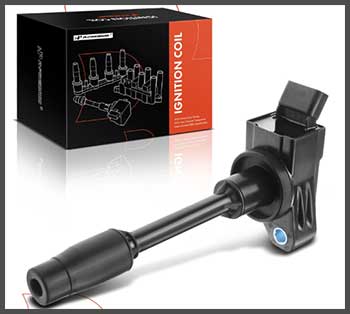
A-Premium coils are another aftermarket contender, costing about $75 for a set of six.
I used them on a Toyota Camry last year, and they delivered decent performance—smooth acceleration and no misfires for the 5,000 miles I tracked.
However, their customer service was slow when a friend needed a replacement.
NPAUTO’s coils match A-Premium’s performance but feel better constructed, with premium copper windings that seem to handle heat better.
NPAUTO’s warranty process through Amazon was also smoother in my experience, making it a slight edge for DIYers like me.
- NPAUTO Vs. MAS Ignition Coils
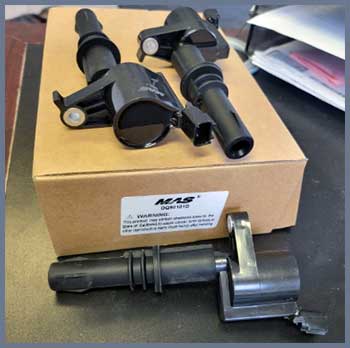
MAS coils are popular on Amazon, priced around $65 for a six-pack.
I installed them on a Nissan Altima, and they worked fine for about 8,000 miles before I noticed a slight stumble during acceleration.
The housing on MAS coils felt flimsier than NPAUTO’s, and one user review mentioned a crack after a hot summer.
NPAUTO’s coils have held up better in my Accord, with no performance issues even in high heat.
For a few bucks more, NPAUTO offers better durability and a more consistent spark, which I’ve come to trust.
- NPAUTO Vs. Walker Ignition Coil
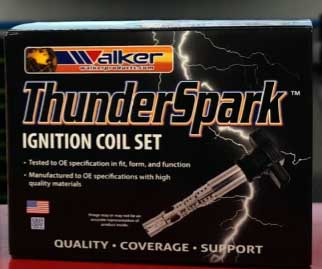
Walker coils, priced at about $70 for a set, are another option I tested on a Dodge Charger.
They performed well, with crisp throttle response and no issues for the first 6,000 miles.
However, their connectors felt less secure than NPAUTO’s, requiring extra care during installation to avoid loose fits.
NPAUTO’s coils clicked into place perfectly on my Accord, and the overall build quality seems a notch above Walker’s.
If you’re choosing between the two, NPAUTO’s ease of installation and robust construction make it the better pick for most drivers.
Frequently Asked Questions (FAQ)
Picking the “best” ignition coil brand depends on your vehicle and needs. OEM brands like Motorcraft, Denso, or Bosch are top-tier for their reliability and perfect fit, especially for finicky engines. But aftermarket options like NPAUTO can match their performance at a lower price. I’ve had great results with NPAUTO on my Honda, and they’re a fantastic value for most cars. Check your vehicle’s requirements and read reviews for your specific model to make the call.
Yes, brand matters, but not as much as you might think. OEM brands like Motorcraft or Denso are designed for your car’s exact specs, so they’re a safe bet. Aftermarket brands like NPAUTO can be just as good if they meet OEM standards, like using high-grade copper and sturdy housings. The key is avoiding no-name brands with spotty quality control. I went with NPAUTO because they balanced cost and quality, and they haven’t let me down.
Absolutely, as long as they’re from a reputable brand. Aftermarket coils like NPAUTO are engineered to meet or exceed OEM specs, and my experience with them has been smooth sailing. They’re often cheaper than OEM without sacrificing performance. Just double-check compatibility with your vehicle and stick to brands with solid reviews. Cheap, no-name coils can fail early, so don’t skimp too much.
Cheap coils can be a gamble. I’ve tried bargain-basement brands before, and one failed on me after just a few months, leaving me stranded. That said, affordable options like NPAUTO aren’t “cheap” in the bad sense—they’re budget-friendly but still well-made. The trick is to avoid brands with no track record or poor reviews. Spend a little extra for a trusted aftermarket brand, and you’ll save yourself headaches down the road.
Why NPAUTO Ignition Coils Are Your Best Bet?
After months of driving with NPAUTO ignition coils, I’m sold. They’re affordable, easy to install, and keep my Accord running like a champ. From better fuel economy to a smoother ride, these coils deliver where it counts.
Sure, they’re not perfect—some users report longevity issues—but my experience has been nothing but positive. If you want reliable performance without draining your wallet, grab a set of NPAUTO coils. Your engine will thank you, and so will your bank account.

